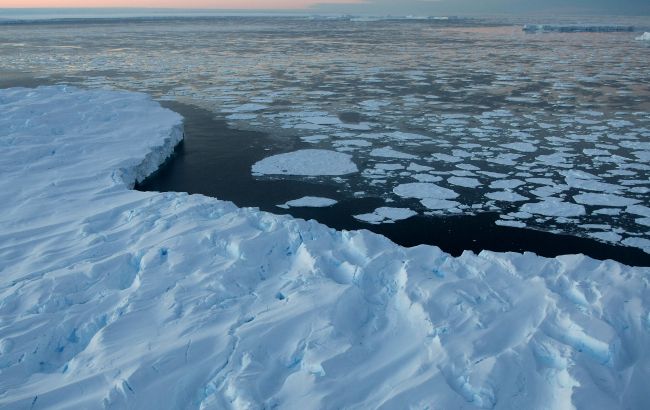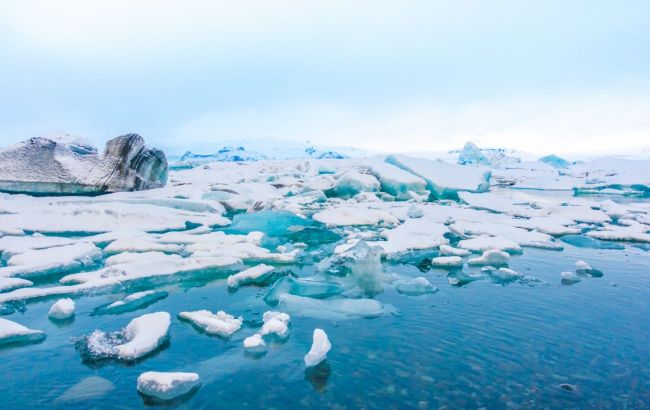Climate change: Delaware-sized ice area melted in Greenland
 Delaware-sized ice area melted in Greenland (Getty Images)
Delaware-sized ice area melted in Greenland (Getty Images)
Since 1985, the ice in Greenland has shrunk by an area similar to Delaware, which is about 1,965 square miles, according to a new study, NBC News report.
The research used satellite pictures to observe the ice's retreat, revealing that icebergs breaking apart in Greenland are happening faster than previously thought. The study suggests that current estimates of how much ice is melting in Greenland could be off by up to 20%.
Scientists are worried about the increasing speed at which Greenland's ice is melting, as it contains 8% of the world's freshwater. If all of Greenland's ice were to melt, sea levels could rise by nearly 7 feet, impacting ocean circulation. The study also implies that the United Nations' assessment of the climate crisis may have underestimated the ice loss in Greenland.

Delaware-sized ice area melted in Greenland (freepik.com)
Other studies from the previous year highlighted rapid changes in Greenland, with one finding that glacial retreat in the 21st century is twice as fast as in the 20th century. Another study showed that floating ice shelves in northern Greenland lost over 35% of their volume, potentially threatening the stability of the ice sheet.
A report from 60 snow and ice scientists expressed concerns that global temperatures rising about 2 degrees Celsius above preindustrial levels could lead to more than 40 feet of sea level rise in the future, affecting Greenland and other ice sheets.
Climate change
In 2023, the Earth broke annual heat records, getting close to the agreed-upon global warming limit. The European climate agency Copernicus says that in 2023, the Earth was 1.48 degrees Celsius (2.66 degrees Fahrenheit) warmer than before the industrial era.
The main reason for the record-breaking heat is the increasing amount of greenhouse gases from burning coal, oil, and gas. Other factors like El Nino, natural climate cycles, solar activity, and a volcano eruption in 2022 also played a role.
The agency predicts that 2024 will likely be even hotter than 2023 due to El Nino and high ocean temperatures. While Copernicus records only go back to 1940, other agencies are expected to confirm similar record-breaking temperatures for 2023.
The loss of sea ice in Antarctica is accelerating at alarming rates, along with many other indicators of rapid climate change. The Global Tipping Points Report, released at the COP28 UN climate negotiations in Dubai, presents scientific findings on negative tipping points in the Earth's system that could harm both nature and humanity.

